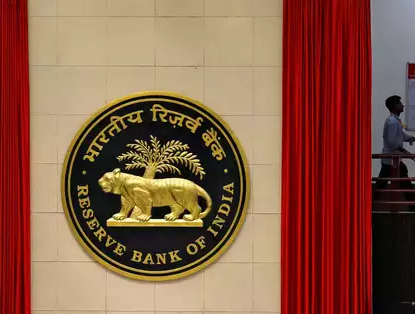RBI Bars 4 NBFCs for Violating Loan Pricing Regulations (GS Paper 3, Economy)

Why in News?
- The Reserve Bank of India (RBI) has recently taken decisive action against four non-banking finance companies (NBFCs)—Asirvad Micro Finance Ltd, Arohan Financial Services Ltd, DMI Finance, and Navi Finserv—by prohibiting them from approving and disbursing loans.
- This decision stems from multiple violations related to excessive interest rates and a lack of transparency in their lending practices.
Understanding Digital Lending
- Definition: Digital lending refers to the process of availing loans through online platforms and mobile applications. It utilizes technology to facilitate customer acquisition, credit assessment, loan approval, disbursement, and recovery.
- Growth Factors: The rapid growth of digital lending can be attributed to increased smartphone penetration, flexible credit options, and the speed of online transactions. Popular products include Buy Now, Pay Later (BNPL) schemes, which allow consumers to purchase items without immediate payment.
Need for Regulation
- Prevalence of Illegal Lending Apps: India reportedly has the highest number of digital loan applications globally, with the RBI identifying around 600 illegal loan apps. These often target low-income individuals, offering small loans (typically between ₹2,000 and ₹10,000) at exorbitant interest rates.
- Harassment and Exploitation: Borrowers often face harassment from recovery agents, including abusive calls and messages, and in extreme cases, sexual harassment. Reports of suicides linked to such harassment have emerged, underscoring the urgency of regulating these lending practices.
- Privacy Breaches: Digital lenders frequently obtain sensitive personal information from borrowers, including PAN and Aadhar details, which can be misused for fraudulent activities.
- Money Laundering Concerns: Investigations have revealed that many loan apps have been involved in money laundering schemes, siphoning off funds to foreign entities, particularly in China.
Steps Taken to Regulate Digital Lending
- RBI's Strengthened Role: The RBI has been designated as the primary authority for addressing complaints against unauthorized digital lending platforms and mobile apps.
- Guidelines Issued: In August 2022, the RBI introduced guidelines aimed at protecting consumers from unethical practices, including mis-selling, data privacy breaches, and excessive interest charges.
- Multi-Agency Crackdown: In September 2023, the Finance Minister led a multi-agency initiative to combat illegal loan apps, instructing the RBI to create a "whitelist" of legal lending applications. The Ministry of Electronics and Information Technology (MEITY) was tasked with ensuring only these verified apps are available on app stores.
- Payment Aggregator Registration: The RBI has also been entrusted with overseeing the registration of payment aggregators and monitoring accounts used for money laundering activities.
- Public Repository of Lending Apps: The RBI plans to create a public repository of verified digital lending applications to help borrowers identify legitimate lenders and avoid illegal apps.
RBI's Action Against the Four NBFCs
The RBI's decision to bar Asirvad Micro Finance, Arohan Financial Services, DMI Finance, and Navi Finserv was primarily due to their non-compliance with pricing regulations. While the RBI does not set a cap on interest rates, it mandates that all lending practices be transparent. The NBFCs in question were found to have:
- Ignored regulatory warnings about fair pricing practices.
- Engaged in usurious lending practices despite the RBI's consistent guidelines.
- Violated regulations regarding income assessment for microfinance loans.
- Failed to comply with the Income Recognition & Asset Classification (IR&AC) norms.
- Lacked transparency in disclosing interest rates and associated fees.
Conclusion
- The RBI's move to bar these four NBFCs highlights the pressing need for robust regulation in the digital lending space to protect consumers from predatory practices.
- As the landscape of digital lending continues to evolve, the importance of maintaining fair and transparent lending practices cannot be overstated, ensuring that borrowers are safeguarded from exploitation and harassment.


